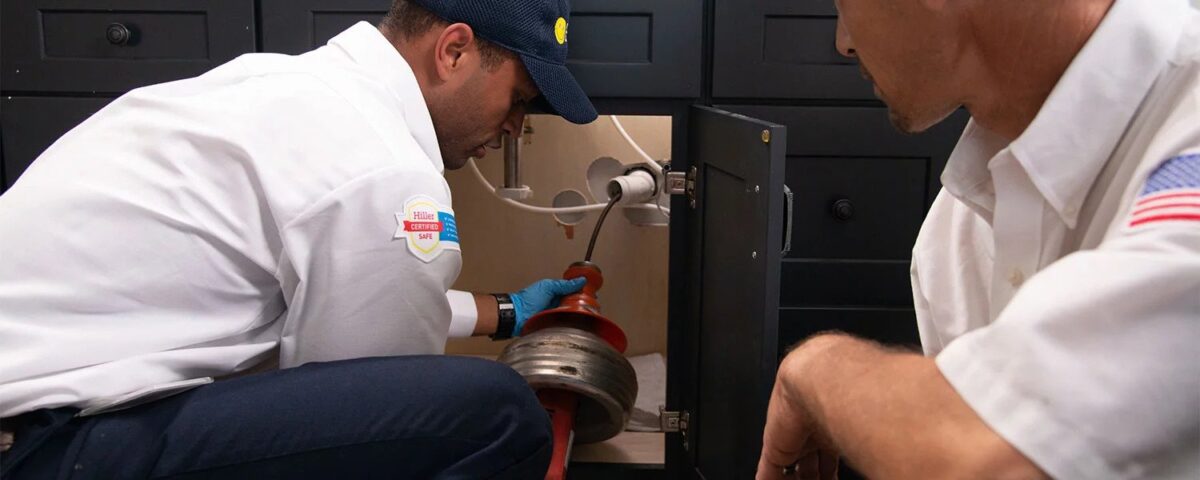How Going With Best Plumbing Leak Detection Services Can Save You Money

If you’re noticing water damage in your home, it’s important to take action immediately and find the source of the leak. A small leak can quickly turn into a big problem, causing extensive damage to your home and costing you a lot of money in repairs. One of the best ways to prevent water damage from a leak is to hire a professional plumbing leak detection service. These services use sophisticated equipment to locate leaks quickly and efficiently. They can also provide repairs and preventative maintenance to help keep your home’s plumbing in good condition and prevent future leaks. While it may cost you a bit of money to hire a professional leak detection service, it’s worth it to avoid the costly repairs that a leak can cause. In some cases, you may even be able to save money on your homeowners insurance by hiring a professional service.
Stop Water Leaks Before They Start
If you’re like most people, you probably don’t think about your home’s water lines very often. But the truth is, even the smallest water leak can waste hundreds of gallons of water each year, and lead to serious damage to your home. Luckily, there are a few simple things you can do to help prevent water leaks before they start. Here are a few tips:
1. Check your faucets and fixtures regularly for leaks. A dripping faucet may not seem like a big deal, but it can actually waste a lot of water over time. The U.S. Geological Survey estimates that a single leaky faucet can waste up to 3,000 gallons of water each year.
2. Inspect your toilets for leaks. A leaky toilet can waste even more water than a dripping faucet—up to 200 gallons per day. To check for a leak, add a few drops of food coloring to the tank and see if it appears in the bowl within 30 minutes.
3. Be sure to fix any leaks right away. Even a small leak can waste a lot of water and cause serious damage to your home over time. So, if you find a leak, don’t wait to have it repaired.
4. Consider installing water-saving fixtures. Low-flow toilets, showerheads, and faucet aerators can all help reduce water waste in your home.
5. Check your home’s water lines regularly. If you have a home with an attached garage, be sure to check the water lines that run to the garage regularly for leaks. These lines are often out of sight and out of mind, but a small leak can quickly turn into a big problem. By following these simple tips, you can help prevent water leaks before they start—and save yourself a lot of money and headaches in the process.
Find and Fix Water Leaks Before They Cost You Money
Water leaks can cost you money, especially if they’re left unchecked. Thankfully, there are ways to prevent and fix water leaks before they cause extensive damage. Water leaks can come from a variety of sources, including burst pipes, faulty appliances, and even dripping faucets. While some leaks are easy to spot, others may be hidden behind walls or under floorboards. If you suspect you have a water leak, the first step is to check your water bill. A sudden increase in your water usage could be an indication of a problem. Next, look for signs of water damage, such as stains on walls or ceilings, or pooling water. If you find a leak, turn off the water to the affected area immediately to prevent further damage. Once the water is turned off, you can begin to fix the leak. For small leaks, such as a dripping faucet, you may be able to repair it yourself. However, for more serious leaks, it’s best to call a professional. Leaks can cause serious damage to your home, so it’s important to fix them as soon as possible. By taking preventive measures and being proactive, you can protect your home from costly water damage.
How to Find a Water Leak in Your Home
Water leaks can be a costly and frustrating problem for any homeowner. If you suspect you have a water leak, it is important to act quickly to avoid further damage to your home. Here are a few tips on how to find a water leak in your home:
1. Check all visible plumbing fixtures for leaks. This includes sinks, toilets, tubs, showers, and any other fixture that uses water.
2. Inspect all exposed pipes for leaks. This includes checking under sinks, in crawl spaces, and in the basement or crawl space, if you have one.
3. Listen for the sound of running water. This may be difficult to hear if the leak is small, but it can be a helpful indicator of where the leak is located.
4. Examine your water bill. If you see a sudden increase in your water usage, this could be an indication of a water leak.
5. Contact a professional. If you suspect you have a water leak but are unable to locate it, it is best to contact a professional plumber. They will have the tools and experience necessary to locate and repair the leak.
How to Detect Water Leaks
Water leaks can often go undetected for long periods of time, causing extensive damage to your home or business. But there are a few telltale signs that can help you detect water leaks before they cause too much damage. If you see any signs of water damage, such as water stains on ceilings or walls, peeling paint, or mold, it’s important to investigate further to see if there is a hidden water leak. Another way to check for water leaks is to look at your water bill. If you see a sudden increase in your water usage, it could be an indication of a water leak. If you suspect there is a water leak, the best thing to do is to call a professional plumbing company to come and take a look. They will be able to locate the source of the leak and make the necessary repairs.
How to Prevent Water Leaks
Water leaks can be a huge pain, not to mention a huge waste of water. If you’re concerned about your water bill or just want to be more eco-friendly, follow these simple tips to prevent water leaks.
1. Check all pipes and fixtures regularly for leaks. This includes turning off all the water in your home and checking the meter. If it’s moving, you have a leak somewhere.
2. Repair any leaks as soon as possible. Don’t wait! The longer you wait, the worse the leak will get and the more water you’ll waste.
3. Be careful when using appliances that use water. Things like dishwashers and washing machines can leak if they’re not used properly. Follow the manufacturer’s instructions carefully to avoid any issues.
4. Inspect your home regularly for any signs of water damage. This can be things like wet spots on walls or ceilings, peeling paint, or mold. If you see any of these, you likely have a hidden water leak.
5. Have a professional plumber inspect your home’s plumbing periodically. They can help identify any potential problems and fix them before they become major leaks. By following these simple tips, you can prevent water leaks and save yourself a lot of time, money, and frustration.
How to Save Money on Water Leaks
If you have a water leak in your home, it can be a costly repair. But there are some simple things you can do to help prevent water leaks, or at least minimize the damage they cause.
1. Check all faucets and fixtures regularly for leaks. A small drip can waste a lot of water over time.
2. Inspect plumbing pipes and fittings for leaks. Check under sinks and behind toilets.
3. If you have an underground sprinkler system, have it checked periodically for leaks.
4. Be aware of signs of a leak, such as a sudden increase in your water bill, water stains on walls or ceilings, or pooling water in your yard.
5. Fix any leaks immediately. The sooner you address a water leak, the less damage it will cause.
6. Take steps to prevent water leaks in the first place. For example, don’t wait until your faucets are dripping to replace worn washers. And don’t use excessive force when opening or closing valves.



